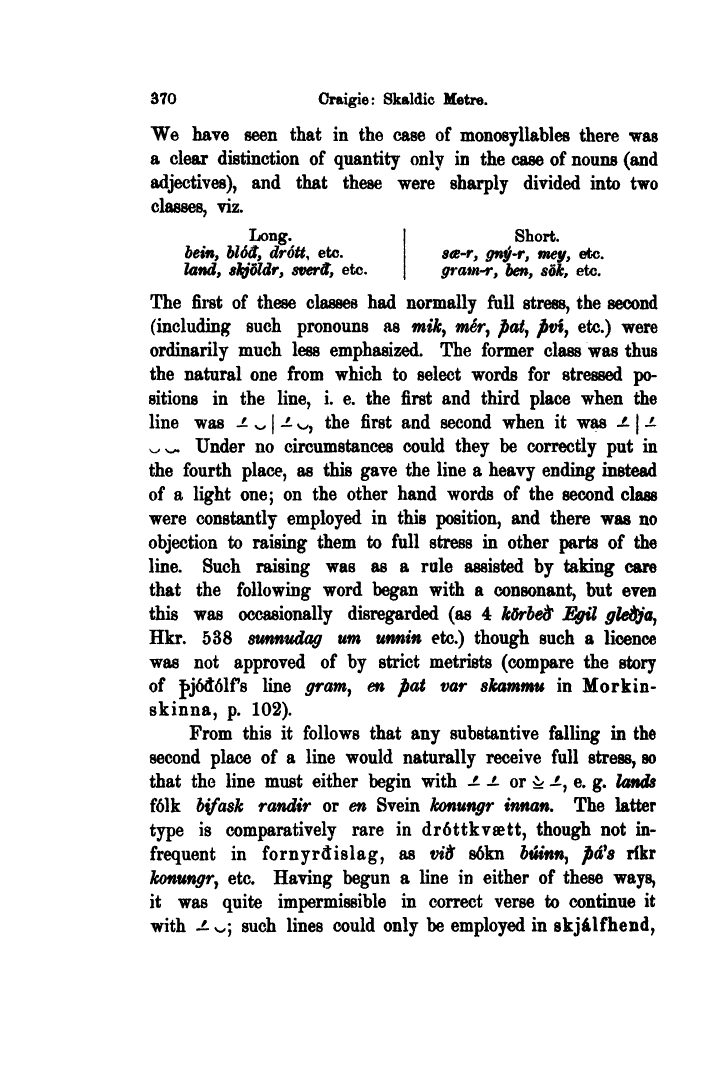
Full resolution (TIFF) - On this page / på denna sida - Sidor ...

<< prev. page << föreg. sida << >> nästa sida >> next page >>
Below is the raw OCR text
from the above scanned image.
Do you see an error? Proofread the page now!
Här nedan syns maskintolkade texten från faksimilbilden ovan.
Ser du något fel? Korrekturläs sidan nu!
This page has never been proofread. / Denna sida har aldrig korrekturlästs.
370
Craigie: Sksldic Metre.
We have seen that in the case of monosyllables there was
a clear distinction of quantity only in the case of nouns (and
adjectives), and that these were sharply divided into two
classes, viz.
Long. I Short.
bein, bloct, droit, etc. sa-r, gny-r, met/, etc.
land, slgoldr, sverS, etc. | gratn-r, ben, sok, etc.
The first of these classes had normally full stress, the second
(including such pronouns as mik, mer, pat, pvi, etc.) were
ordinarily much less emphasized. The former class was thus
the natural one from which to select words for stressed
positions in the line, i. e. the first and third place when the
line was s ^\s^y the first and second when it was J- \
J-wv^. Under no circumstances could they be correctly put in
the fourth place, as this gave the line a heavy ending instead
of a light one; on the other hand words of the second class
were constantly employed in this position, and there was no
objection to raising them to full stress in other parts of the
line. Such raising was as a rale assisted by taking care
that the following word began with a consonant, but even
this was occasionally disregarded (as 4 kOrbefr Egil glefyja,
Hkr. 538 sunnudag urn unnin etc.) though such a licence
was not approved of by strict metrists (compare the story
of J>j6d61fs line grain, en pat var skammu in
Morkin-skinna, p. 102).
From this it follows that any substantive falling in the
second place of a line would naturally receive full stress, so
that the line must either begin with J- J- or ^ -£, e. g. lands
f61k bifask randir or en Svein konungr innan. The latter
type is comparatively rare in dr6ttkv»tt, though not
infrequent in fornyrdislag, as vit! s6kn buinn, pa’s rlkr
konungr, etc. Having begun a line in either of these ways,
it was quite impermissible in correct verse to continue it
with -£ v^; such lines could only be employed in skj&lfhend,
<< prev. page << föreg. sida << >> nästa sida >> next page >>